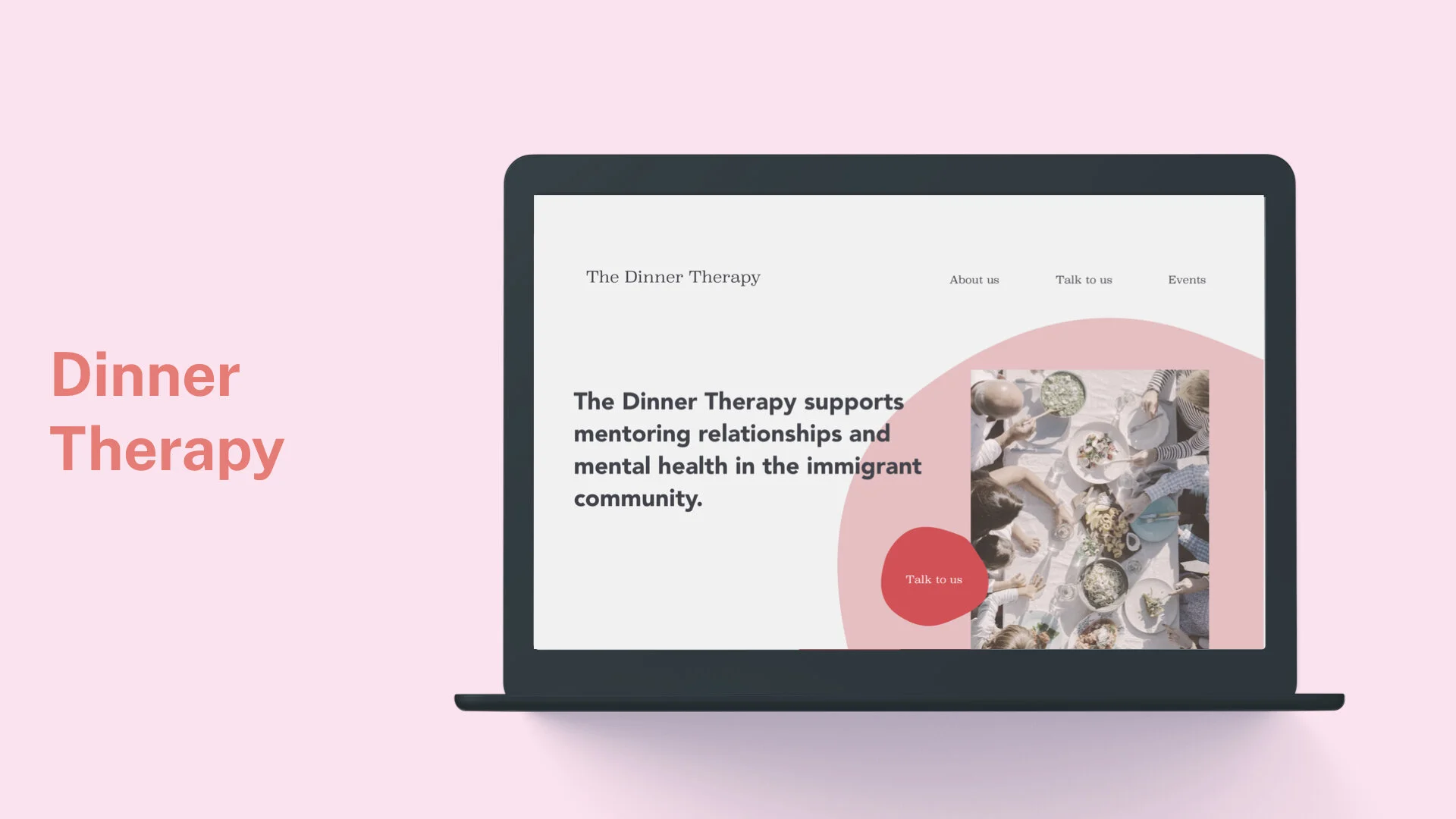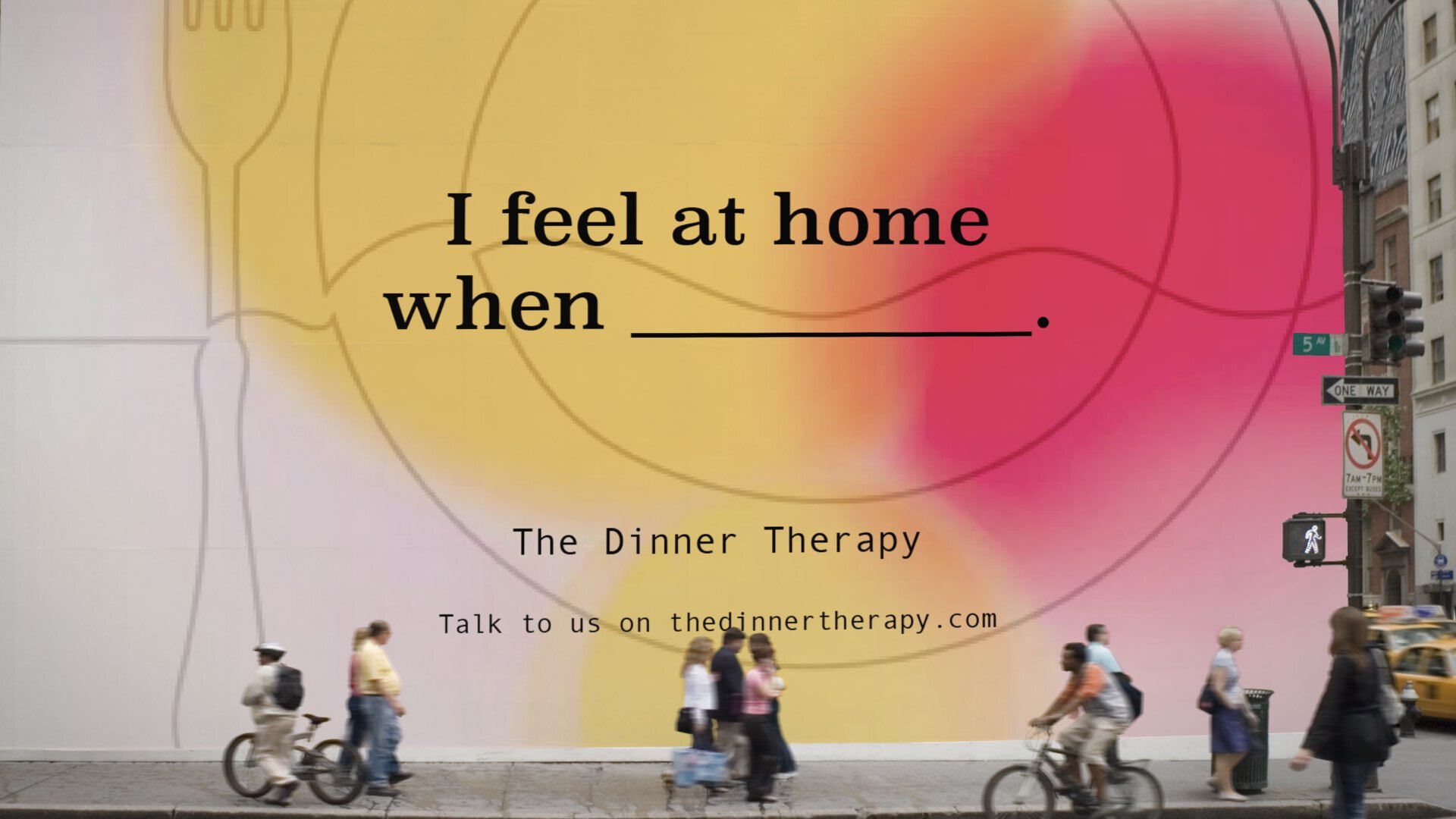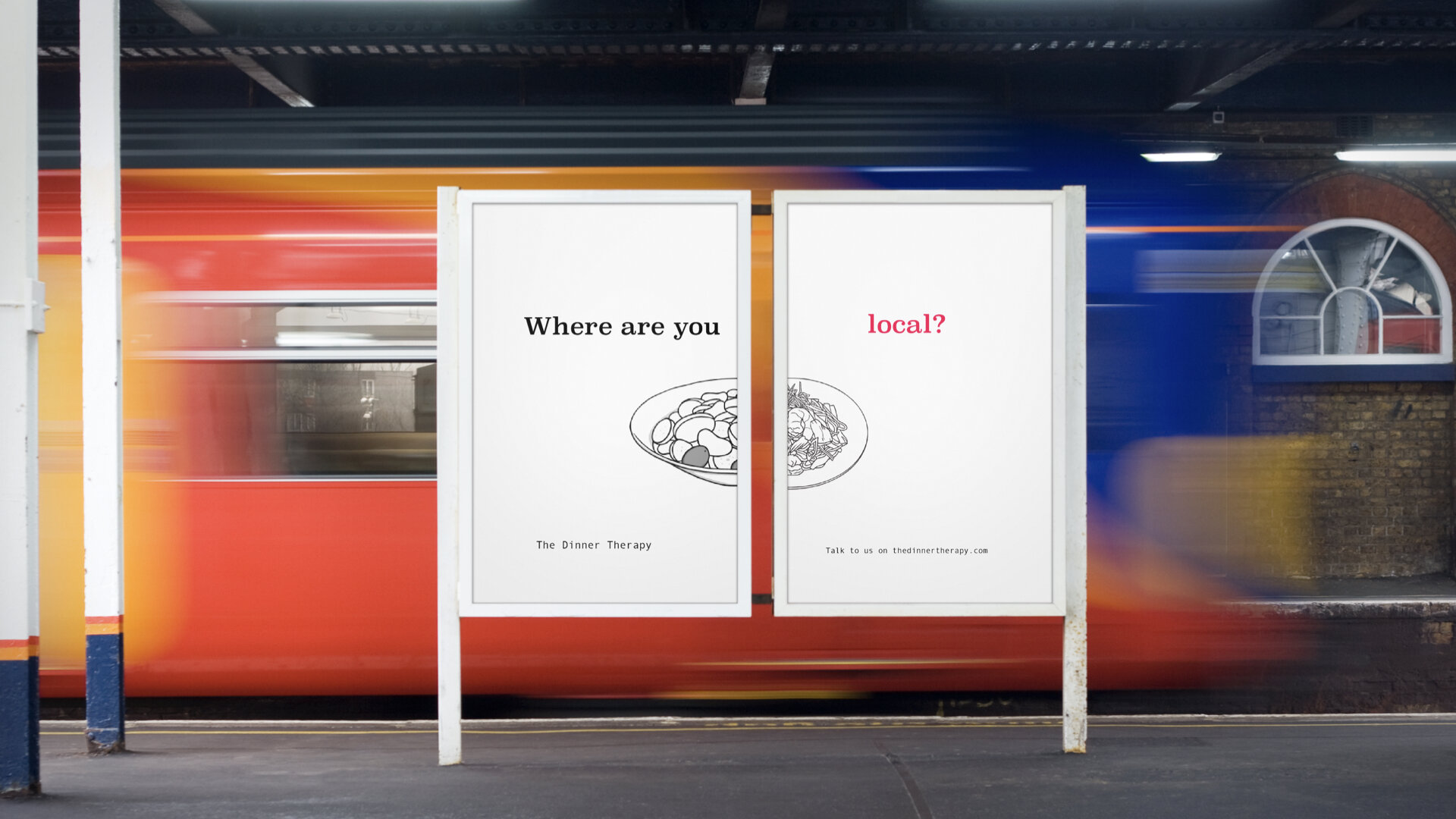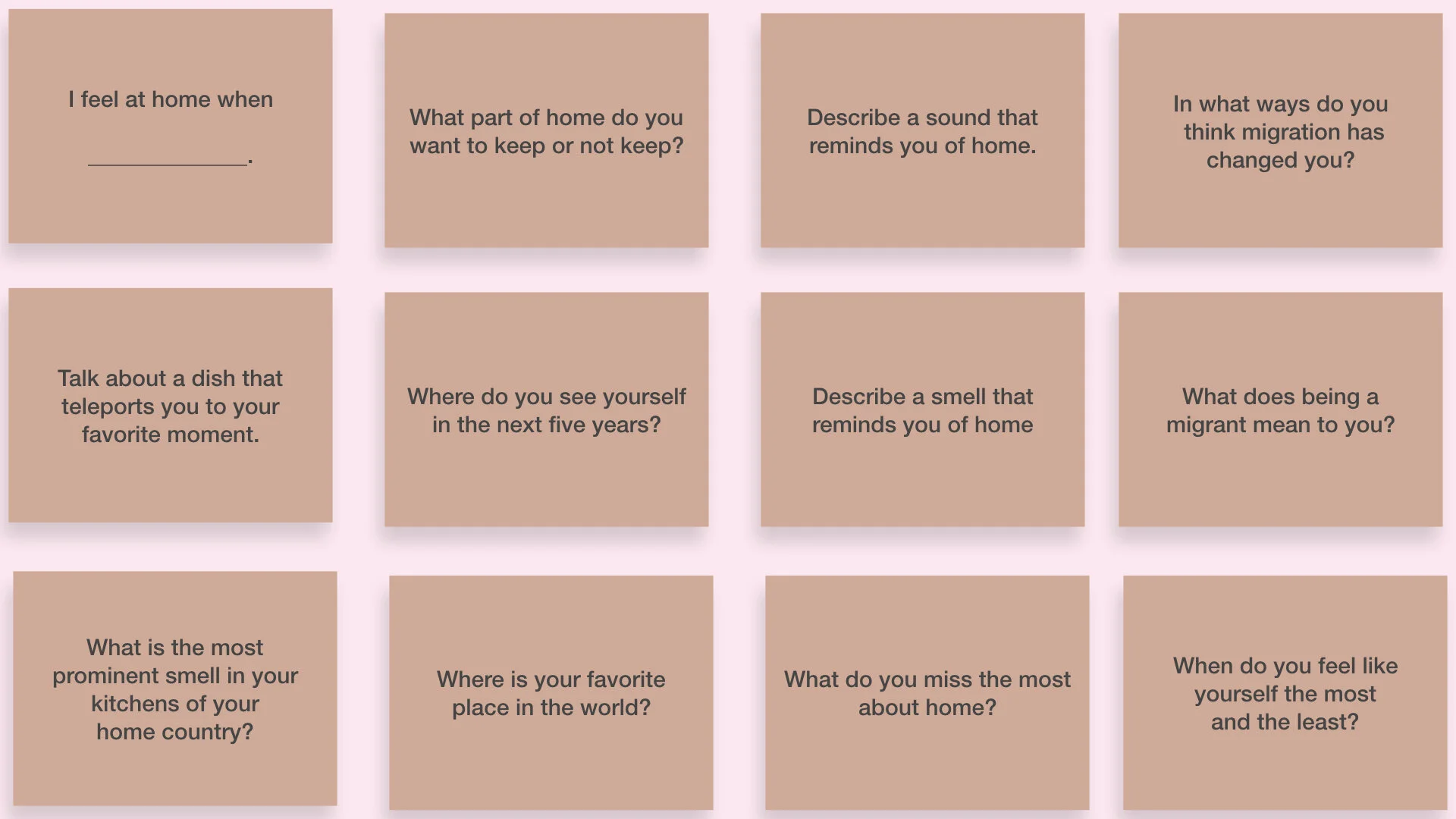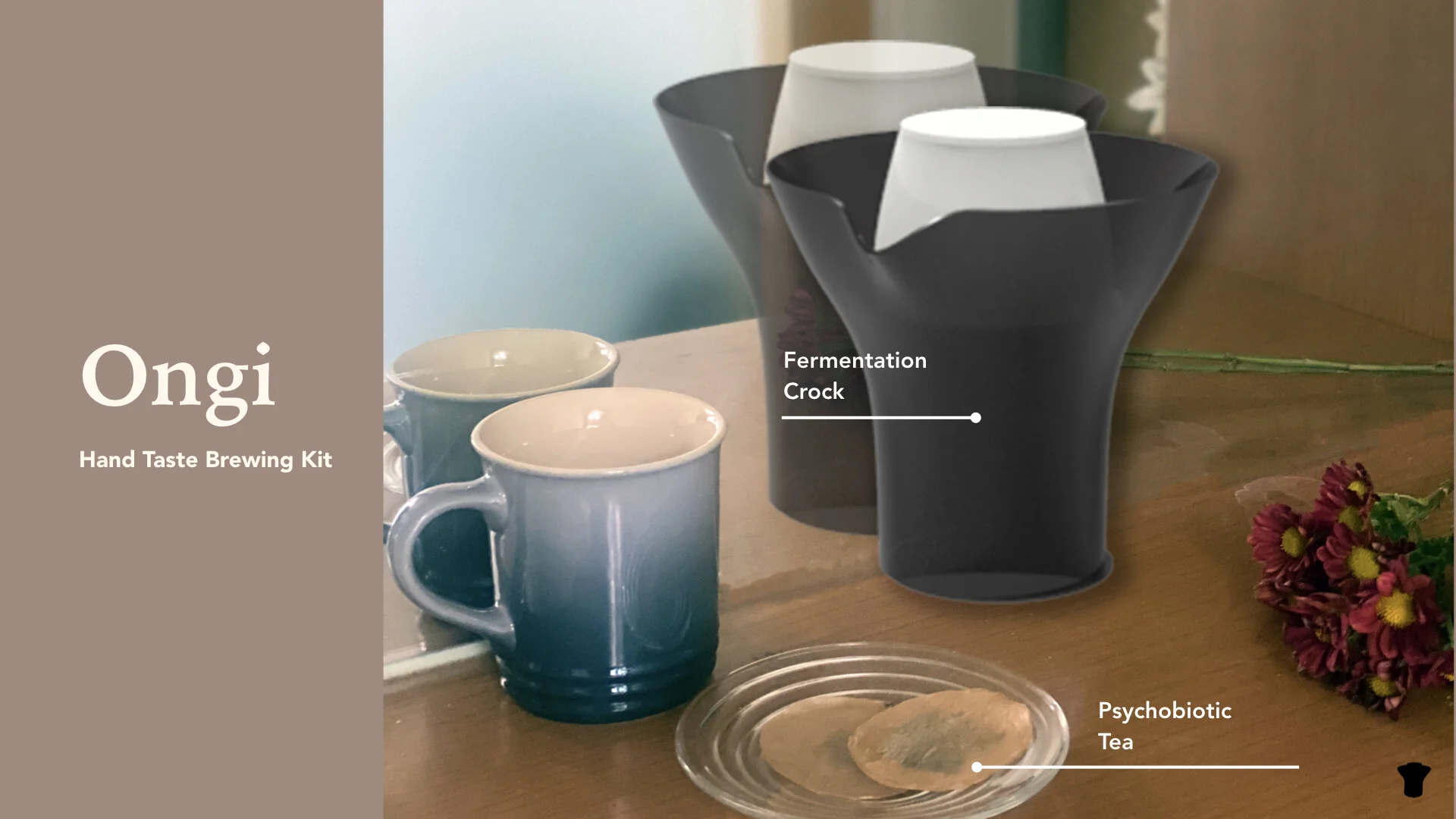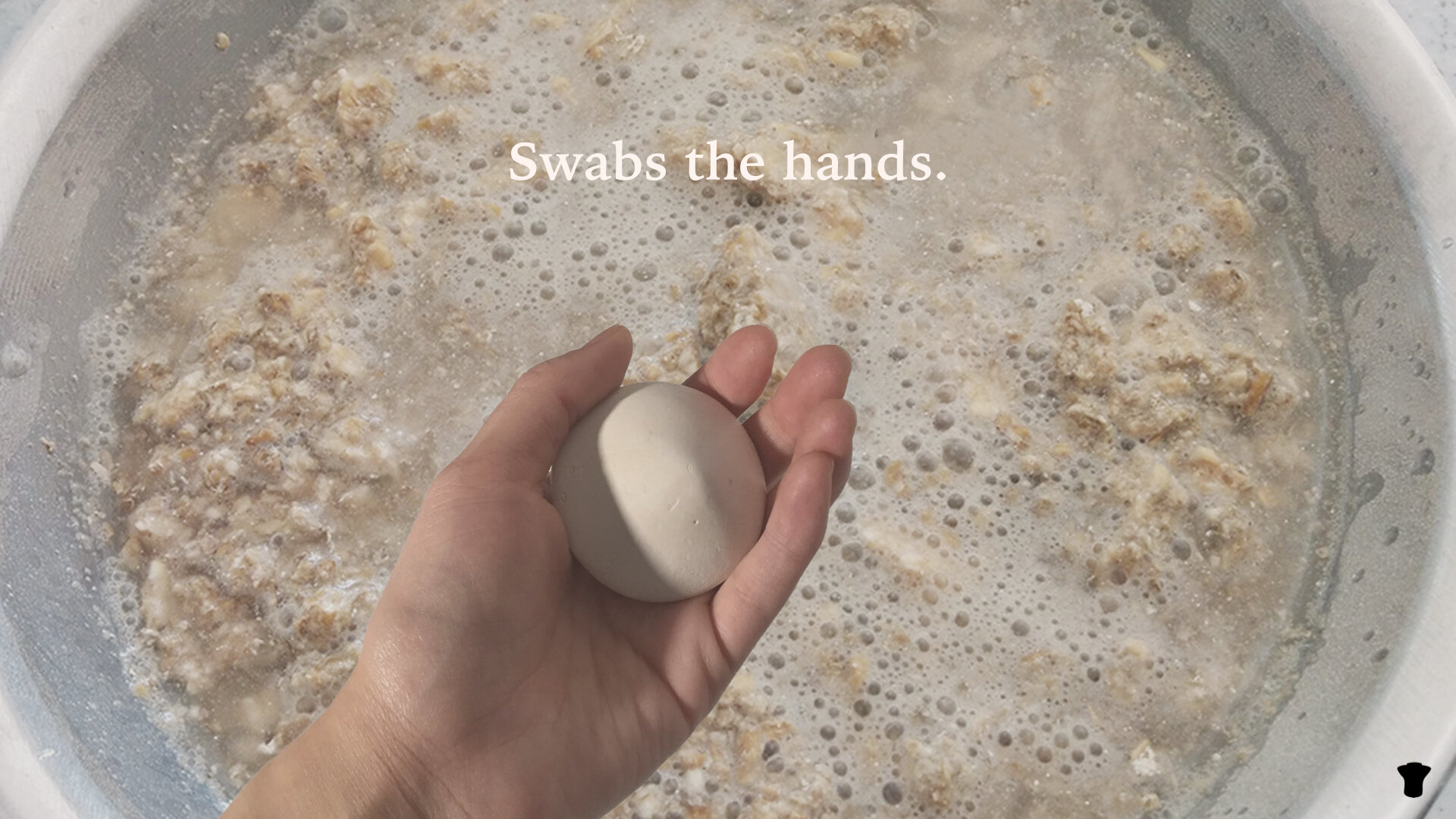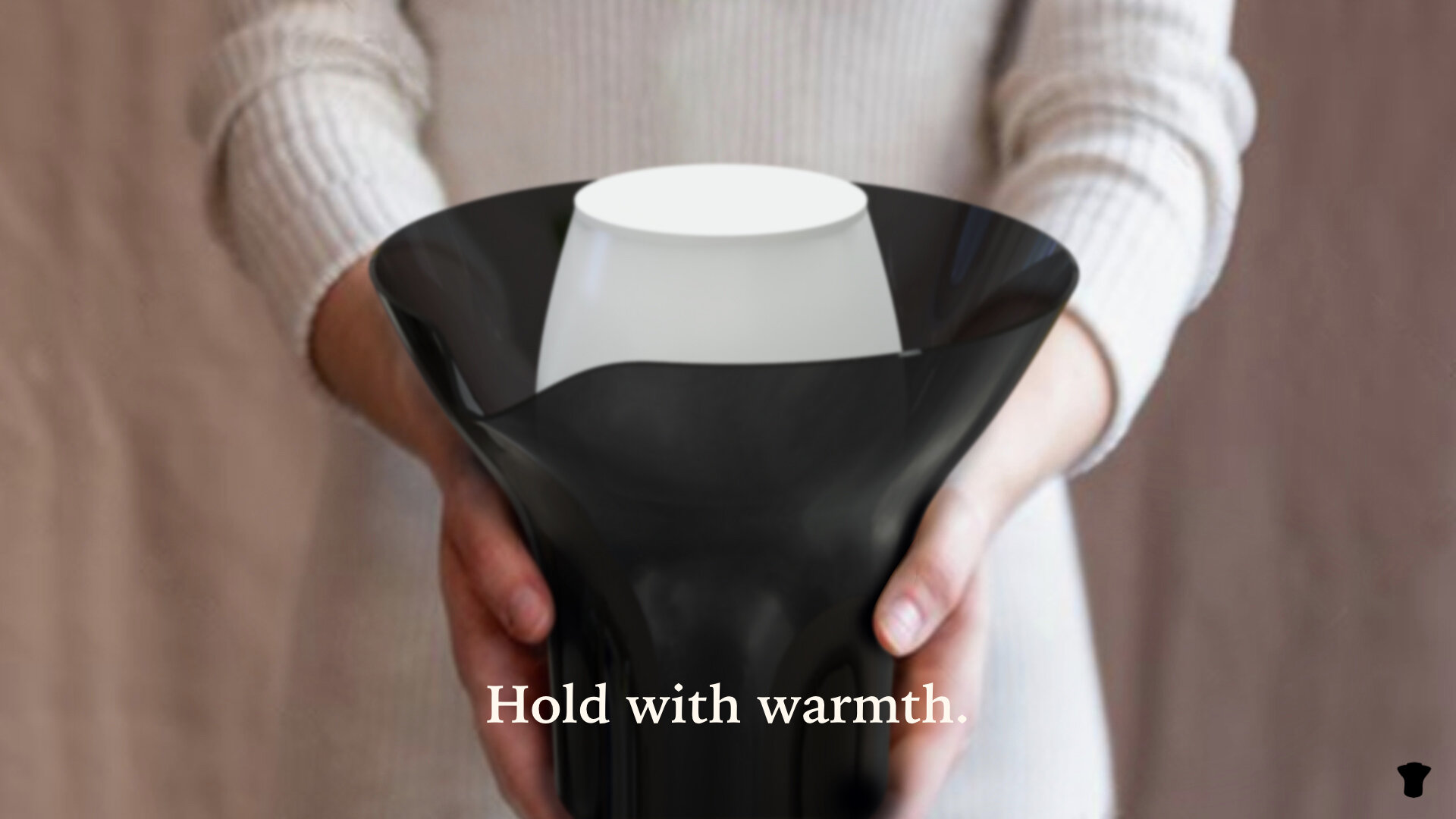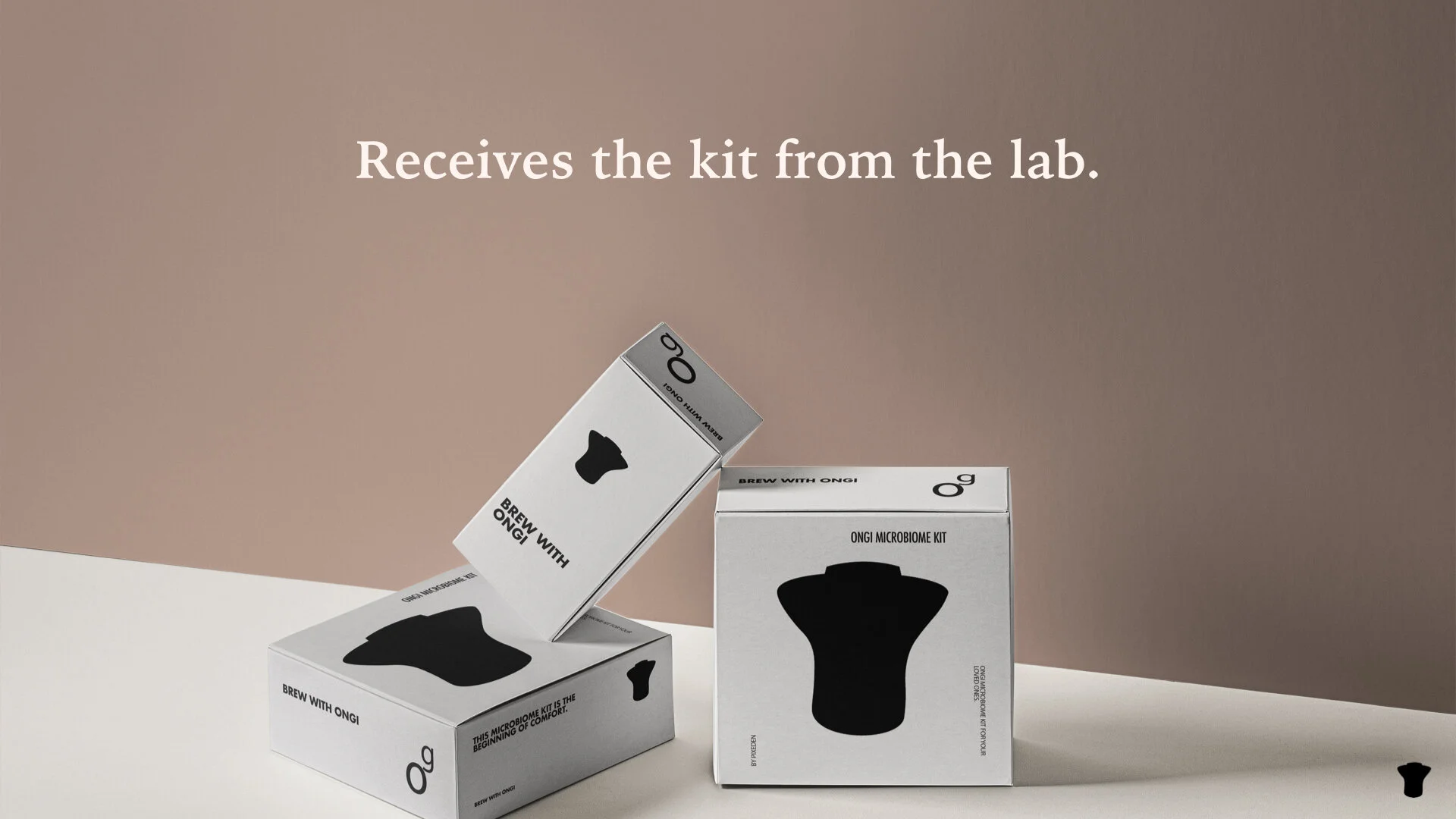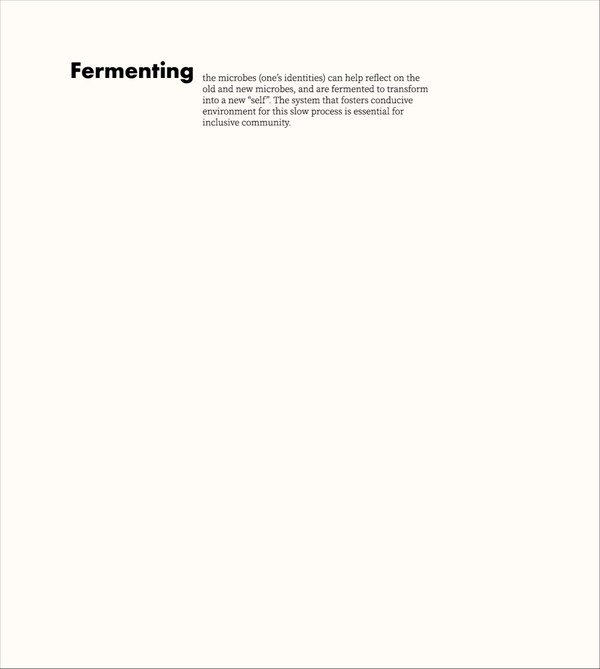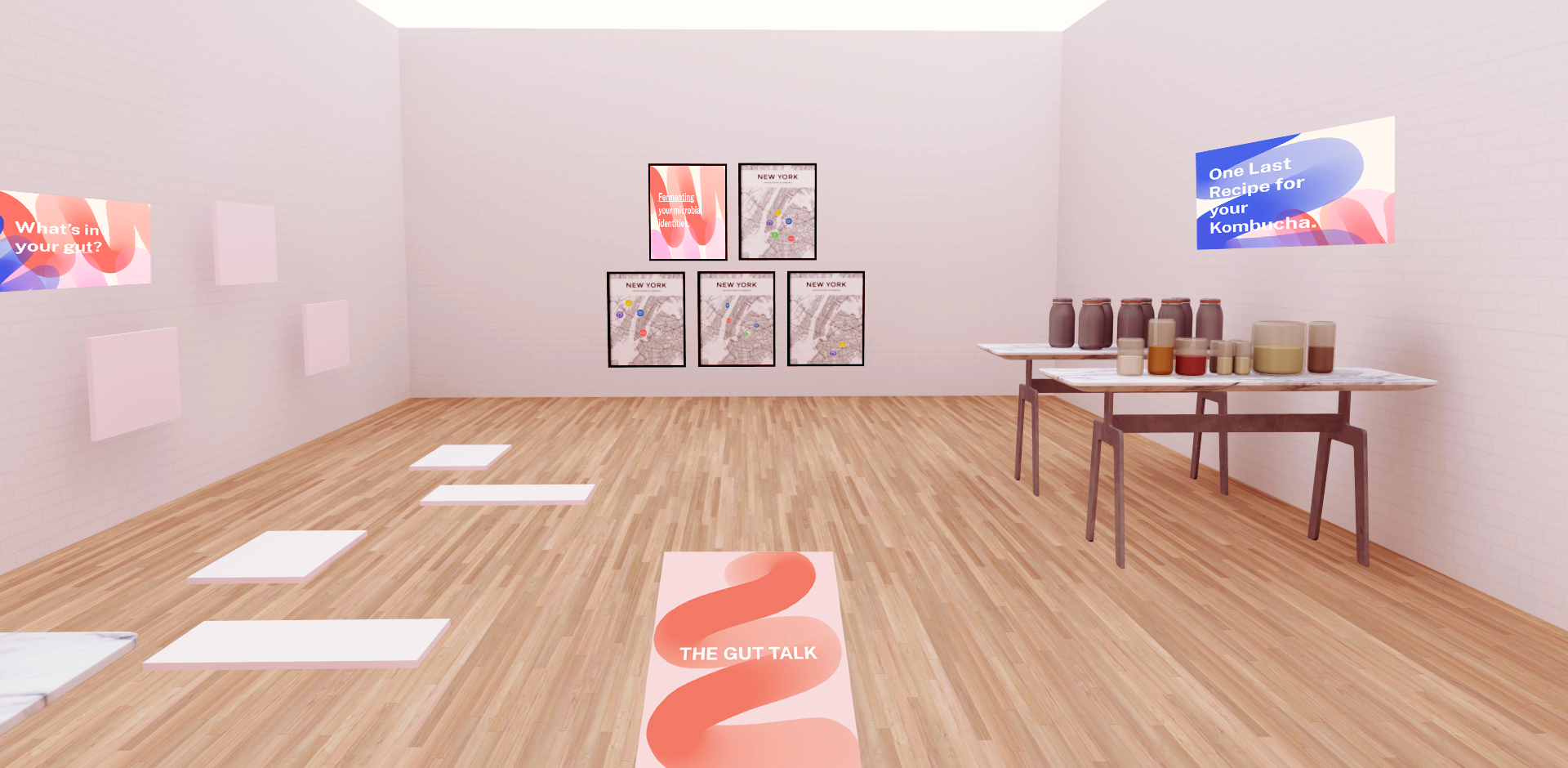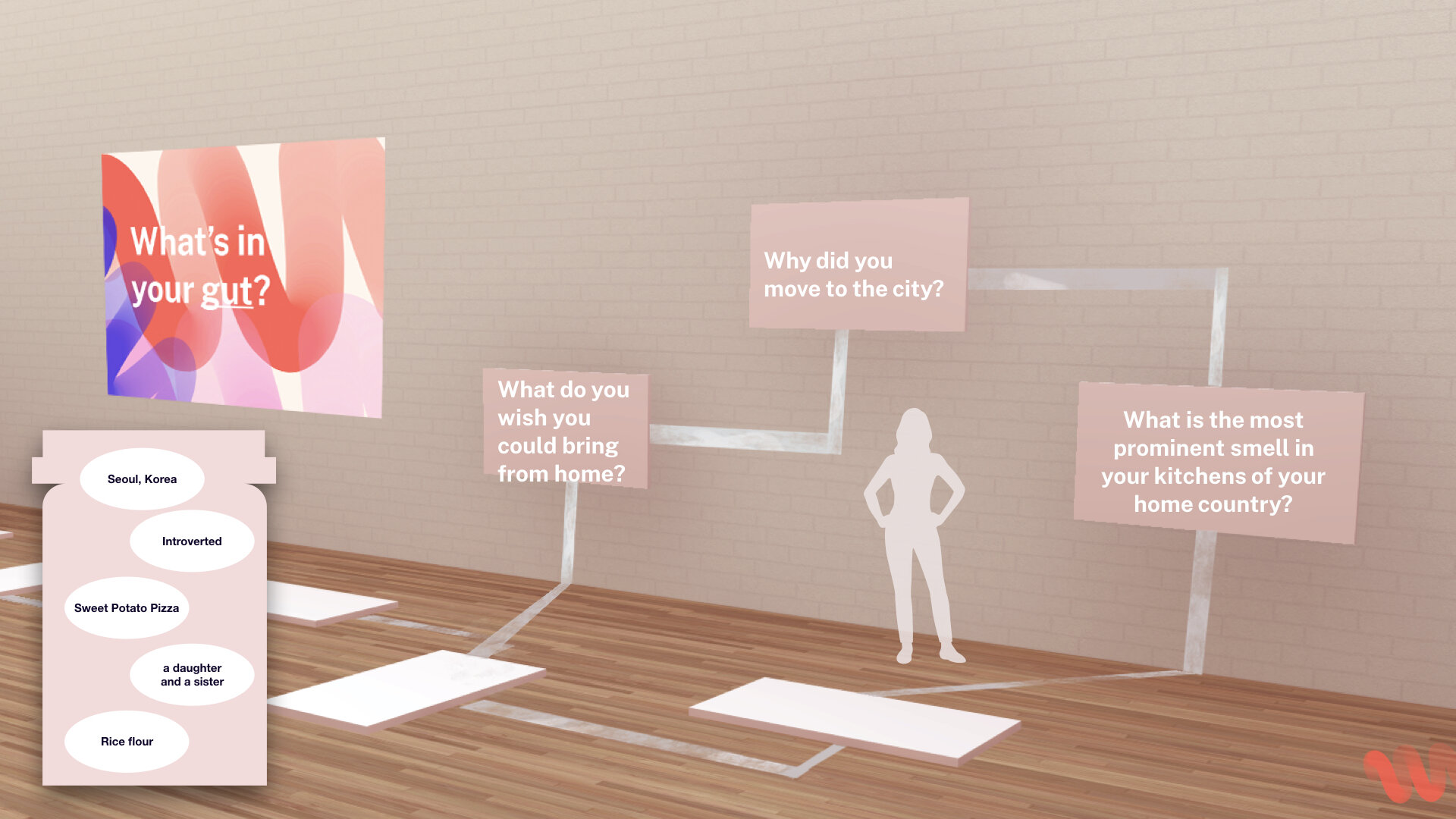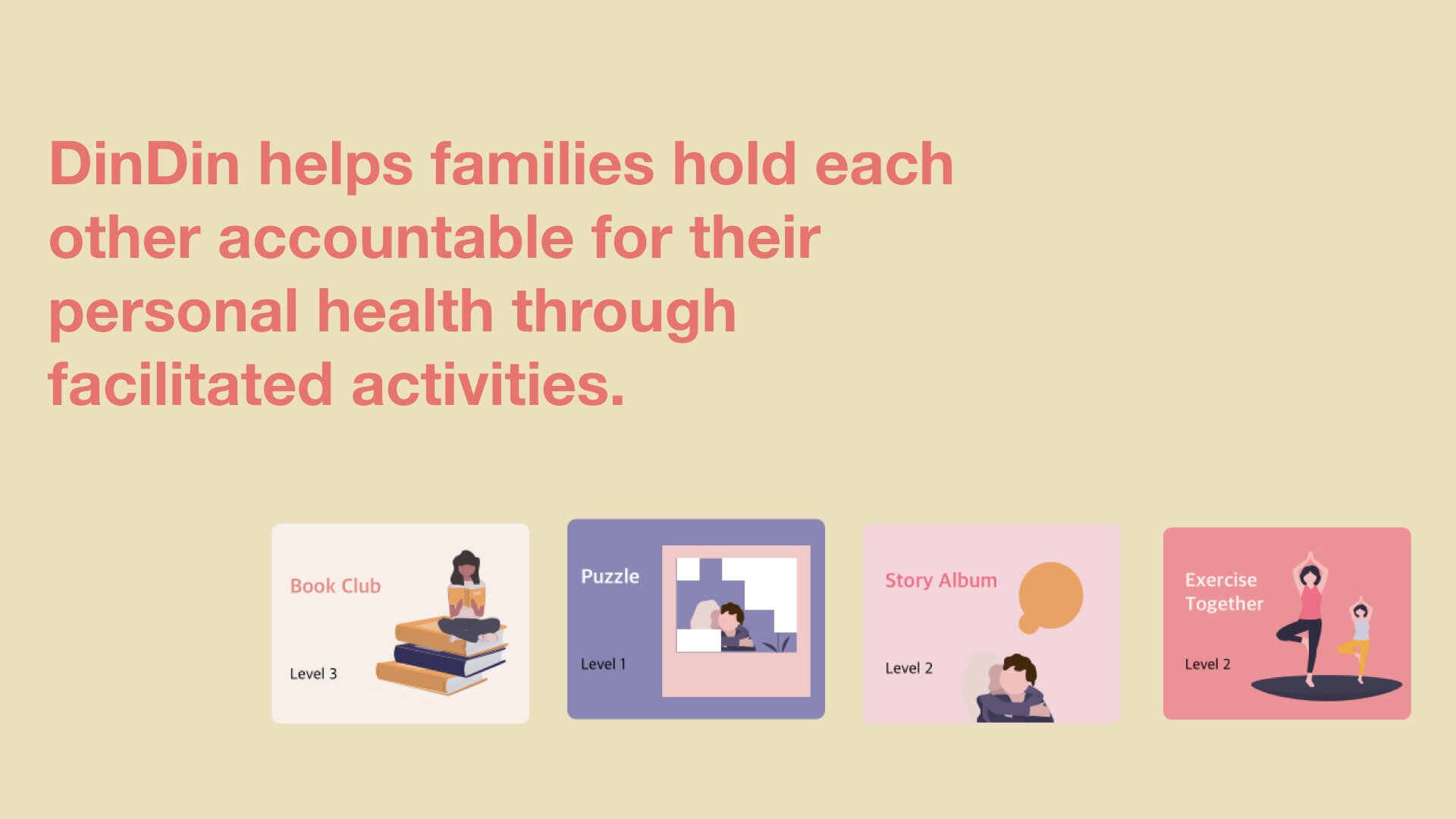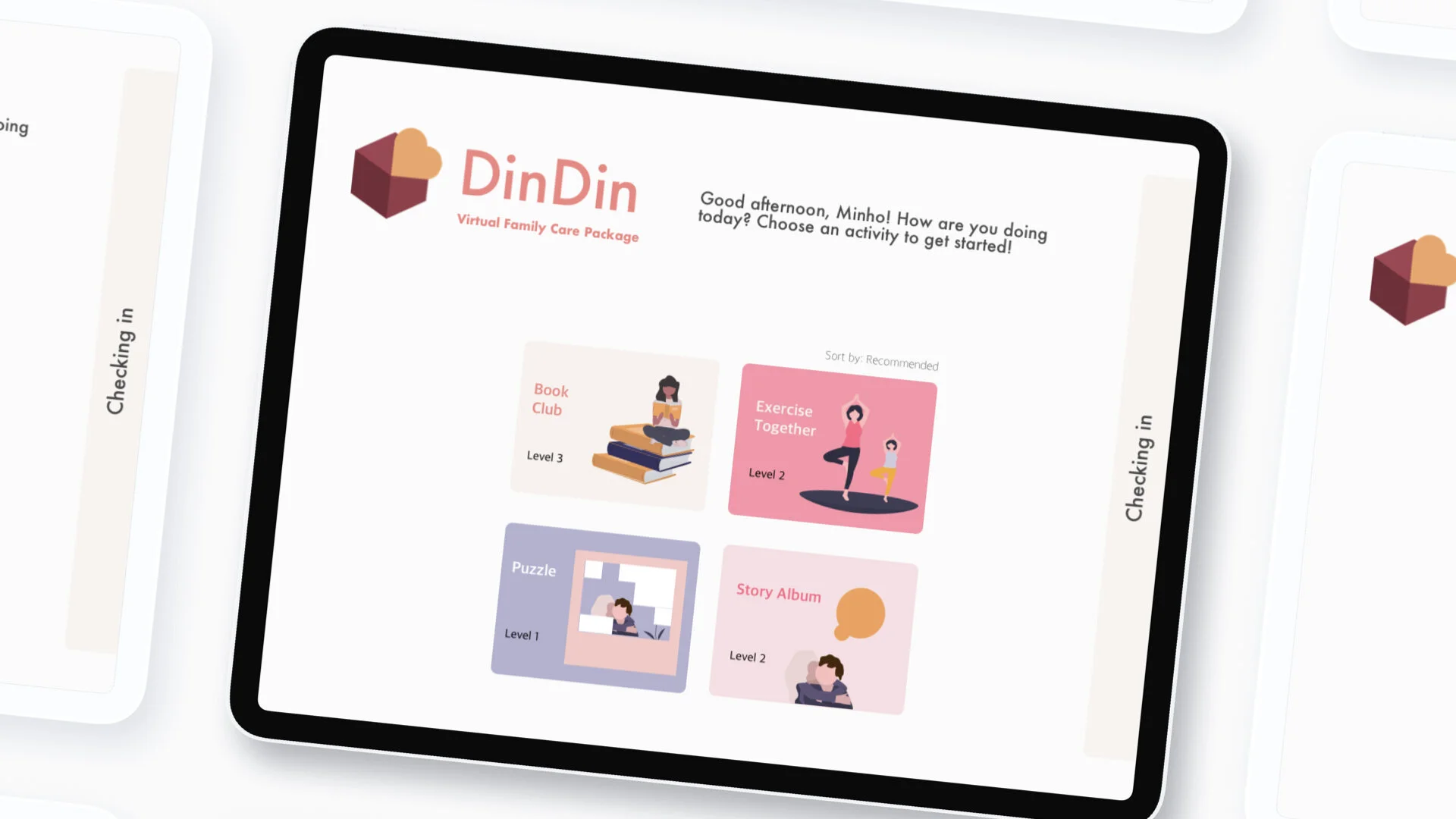HOME IN PROGRESS: Designing Systems of Collective Care for Migrant Communities through Food and Multi-Sensory Experiences
Seona Joung, as a first-generation immigrant, has often dwelled in the in-between spaces of two geographies and cultures. Her thesis, Home in Progress: Designing Systems of Collective Care for Migrant Communities through Food and Multi-Sensory Experience, questions how design constructs and narrates a new relationship between people and multiple locations and thus serves as an ideal site to interrogate how immigrants relate themselves to the place of origin and the place of residence. Looking at the consequences of what migration does to the family relationship and social structure that influence our identity and health, her design work offers multilocal strategies that leverage sensory experiences, specifically triggered by food preparation and consuming.
How do contemporary immigrants develop a sense of belonging to multiple spaces through design, maintaining links to their places of origin while residing in distant lands?
Globalization has challenged traditional concepts of belonging between people and places. People, ideas, information, capital, and technologies are flowing around the world further and more rapidly than at any other time in history. Migration problematizes locality and physically divorces people from places. It also begets trauma, pain, and conflict. The dislocation forms gaps in their values and identities. Many immigrants leave their home localities for work, educational opportunities, or to escape climate disasters and violence. In doing so, they are both leaving behind and bringing with them facets of culture that might be lost or leveraged.
Dinner Therapy
Dinner therapy is a service that helps them meet mentors or therapists who identify with their cultural and ethnic backgrounds. For immigrants, the barriers to access to mental health care are 1) fear of interacting with the government and health care facilities 2) stigma around mental health and 3) lack of cultural competency in care. Offer Seona, "As the current climate around immigration has deeply created tension, immigrants need to know who their advocates are and celebrate the hard work they do."
Dinner Therapy can be initiated with other community members to address this issue through multi-sensory experience. It provides a space for them to reflect on their migration journey and how their identities and sense of belonging evolved through sensory mapping exercises.
This service can serve as a gateway to formal mental health care. The immigrants who might be afraid to interact with health care institutions or do not understand the need of care would benefit by vocabularizing their feelings and reflections through daily rituals as easy as just getting a meal with someone.
Ongi and Identitea
There is a Korean word called Sonmat, which refers to the hand taste of the person who cooks the food. Often used in the context of one's mothers' cooking, it refers to how good her food tastes or how much you crave her dishes. This taste of the hand—does it actually make the food taste good? Does the microbiome on her hand get passed on to the food? The traditional fermentation crock Onggi pot that is used to make Kimchi. The word literally means "breathing clay," and because of how these containers allow air to move through them, it already contains the microbiome of the hand and kimchi.
As migrants who are away from their family are physically separated, and their gut microbiome diversity gets reduced, they become vulnerable to chronic illness. Their native microbes[1] change to assimilate into the new microbes, similar to the host community. Fermented food is highly regarded because of its health benefits. All cultures have different types of fermented foods and have unique traditions and rituals around it. These rituals and recipes get passed down to people's offsprings.
What if we could gain comfort by preserving family members' microbiomes when we are abroad and separated from them?
Ongi, which means warmth in Korean, is a fermentation kit for brewing Kombucha that encourages fermentation as a ritual. The kit includes a fermentation crock and Identitea tea bags made out of dehydrated Scoby. The Scoby used to brew Kombucha is a symbiosis of hand yeast of a family member and genetically modified bacteria that express a gene that increases serotonin production. The tea bag can be used to reactivate the scoby and brew more Kombucha or soaks it into your tea bath routines.
Gut Talk
With the Immigrant Microbiome Project, a University of Minnesota led by Dr. Pajau Vangay investigated the gut microbiomes of Hmong and Karen women in Thailand and the Twin Cities. The gut microbiome is shaped by our culture, our diets, and lifestyle, but once we move to somewhere new where these influences drastically change, the microbes become similar to those in the new place; diversity goes down, leading to chronic illnesses.
"The Gut Talk is a public exhibition driven by stories of our gut microbes," writes Seona. "The imagined space provides room for reflecting and fermenting on migrants' microbial identities. The design was driven by the idea of embodying the exploration of how our culture, relationships, the transnational experience of moving from one country to another influence our self-perception and changing identities. It's a space for any migrant to find a sense of self through fermentation as an inclusive framework and celebrate diversity in our society."
As Seona proposes fermentation as a more inclusive framework that helps immigrants and immigrant communities to cultivate their identity and the inclusive society, she views immigrant health holistically through physical, mental, and cultural health perspectives.
DinDin
Family is a significant driver of migration. Through migration, families improve their income, access to education and health, and are generally able to provide better prospects for their children. However, many families remain separated. Current US immigration policies are more focused on individual migrants and severely limit family-based immigration. The reality of contemporary migration is such that those who stay behind are often negatively impacted by the absence of the member(s) of the family who have migrated. Parent-child relationships are particularly affected.
Immigrants are very much focused on survivalism. Gaps between their families grow apart. Seona writes, "I wanted DinDin to help families hold each other accountable for their health through facilitated activities rather than monetization and control by technology.". The facilitated activities such as puzzles, yoga, journals, book club are recommended by the service based on the families' goals and demographics. They give voices to the children and elderly parents who play considerable roles in transnational families but have not been given a lot of attention.
DinDin is unlike the smart home technologies in which the family member is too overt and controlling on what their parents or children might be doing. DinDin is a gentle check-in to be on the same page with each other, just through love and care.













